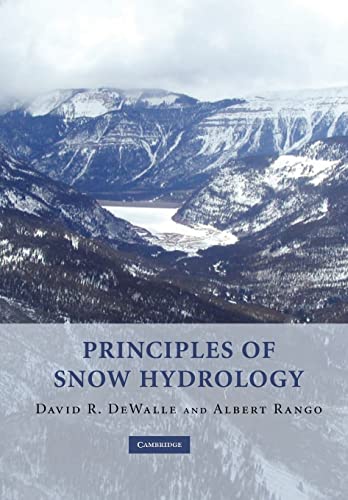All books / Book
Principles of Snow Hydrology

| Full title: | Principles of Snow Hydrology |
|---|---|
| ISBN: | 9780521290326 |
| ISBN 10: | 0521290325 |
| Authors: | DeWalle, David R. |
| Publisher: | Cambridge University Press |
| Edition: | 1 |
| Num. pages: | 428 |
| Binding: | Paperback |
| Language: | en |
| Published on: | 2011 |
Read the reviews and/or buy it on Amazon.com
Synopsis
Snow hydrology is a specialized field of hydrology that is of particular importance for high latitudes and mountainous terrain. In many parts of the world, river and groundwater supplies for domestic, irrigation, industrial, and ecosystem needs are generated from snowmelt, and an in-depth understanding of snow hydrology is of clear significance. Study of the impacts of global warming has also stimulated interest in snow hydrology because increased air temperatures are projected to have major outcomes on the snow hydrology of cold regions.
Principles of Snow Hydrology describes the factors that control the accumulation, melting, and runoff of water from seasonal snowpacks over the surface of the earth. The book addresses not only the basic principles governing snow in the hydrologic cycle, but also the latest applications of remote sensing, and principles applicable to modeling streamflow from snowmelt across large, mixed land-use river basins. Individual chapters are devoted to climatology and distribution of snow, ground-based measurements and remote sensing of snowpack characteristics, snowpack energy exchange, snow chemistry, modeling snowmelt runoff (including the SRM model developed by Rango and others), and principles of snowpack management on urban, agricultural, forest, and range lands. There are lists of terms, review questions, and problems with solutions for many chapters available online at www.cambridge.org/9780521823623.
This book is invaluable for all those needing an in-depth knowledge of snow hydrology. It is a reference book for practicing water resources managers and a textbook for advanced hydrology and water resources courses which span fields such asengineering, Earth sciences, meteorology, biogeochemistry, forestry and range management, and water resources planning.